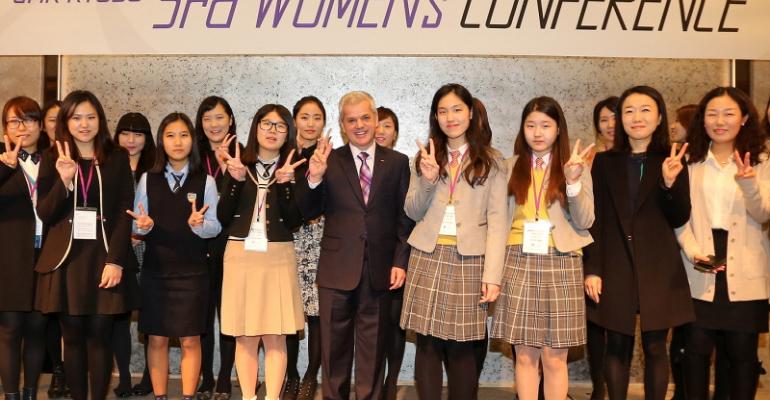INCHEON, South Korea – When it comes to the cause of gender equality in the workplace, one of the major vehicles for change in South Korea is not only built but also steered by General Motors.
About a year and a half before Mary Barra took the GM corporate reins as CEO, becoming the first woman to head a major global automaker, subsidiary GM Korea in 2012 picked Jina Hwang as director of communications, making her the first woman to reach an executive-level position in the Korean auto industry.
That appointment was pivotal in a country where women still are often perceived as servants and, no matter how much they’ve distinguished themselves academically or professionally, they’re expected to give up their careers when they marry.
“As a whole, Korean society is a male-dominated society,” Hwang says in an interview with WardsAuto at GM Korea’s headquarters in Incheon.
Thus, it’s been a challenge for the automaker to retain female employees over the past decade, in spite of its pledge to offer all comers an opportunity to build and advance their careers through the merits of their individual achievements.
While the company has grown to 19,000 total employees from 8,300 at its launch in 2002, the number of women in its ranks is only about 1,000, though that’s more than three times the count when GM Korea was formed.
According to a 2013 McKinsey Global Institute study, an estimated 57% of women in Korea are economically active, but that participation drops as much as 15 percentage points for those in their 30s, presumably when family becomes their primary focus.
Other data from the country’s Ministry of Employment and Labor suggest that at the end of 2012, women comprised 37% of the workforce at South Korean companies with at least 1,000 employees, but represented only 17% of the managerial positions at private and public businesses.
GM Korea President and CEO Sergio Rocha notes 22% of his female workforce hold leadership posts. Aside from Hwang, who directs governmental relations and public policy issues in addition to crafting the company’s messaging, Rocha has hired two other women to his executive committee: his chief financial officer and vice president of purchasing.
In 2005, GM Korea established a women’s committee, which meets monthly to strategize about addressing worker needs and further promoting gender equality.
Four years ago, the automaker launched an annual women’s issues conference, which is geared to employees of GM Korea and its suppliers. It has been supported by other big companies such as Kyobo Life, 3M Korea, L’Oreal Korea, Levi’s Korea, Korn/Ferry International and Yuhan-Kimberly.
The latest conference, held Nov. 5 in Seoul, attracted more than 350 participants.
Hwang, who oversees the GM Korea women’s committee, conference and other outreach efforts, says she’s encouraged that among younger generations of Koreans, attitudes about women are “changing rapidly” and there is an abundance of female students in elementary and middle schools, along with business-development programs like the automaker’s own GM Jumpstart Korea.
But, she notes, enthusiasm over making one’s mark in the business sector diminishes without adequate resources or support from others.
According to the World Economic Forum’s 2014 Gender Gap Report, which measures the differences between men and women in economic, political, education and health-based criteria, South Korea ranked 117th out of the 142 countries researched for the study, below China (87th) and Japan (104th).
Put another way, in South Korea – which was ranked higher in 2006, at 92nd, and even last year, at 111th – women generally have 64% of the access to economic opportunities men typically enjoy.
GM Korea’s oasis of equality is showing the rest of the country a more enlightened way, says Hwang, noting Rocha has proved a strong advocate for women’s rights, as well as the rights of all of the automaker’s employees.
Rocha has made it a goal to develop a new culture of open communication, Hwang says, and “all his executive committee members are well-aligned with what he’s trying to deliver...it is really cascading to the team leaders and down.”
“It's a journey,” Rocha says, adding it’s generally understood Korean culture “is quite blocked for a woman.”
Nonetheless, “I believe we are moving in the right direction,” he says. “We have much more to do.”





